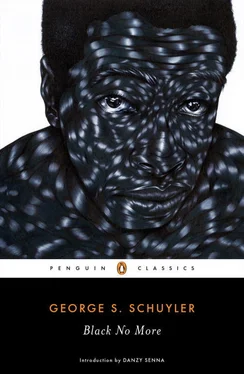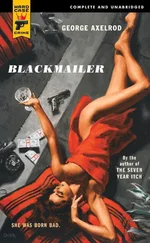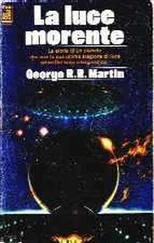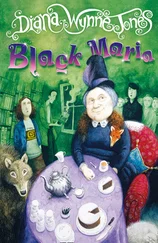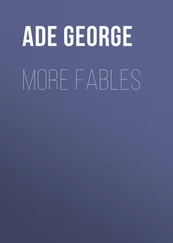“Say, you’re a regular fellow,” he said, beaming upon her. “I’ll get a great kick out of going to dinner with you because you’ll be the only one in the place that’ll know I’m a Negro.”
Down at the office of The Scimitar , it didn’t take Max long to come to an agreement, tell his story to a stenographer and get a sheaf of crisp, new bills. As he left the building a couple of hours later with Miss Smith on his arm, the newsboys were already crying the extra edition carrying the first installment of his strange tale. A huge photograph of him occupied the entire front page of the tabloid. Lucky for him that he’d given his name as William Small, he thought.
He was annoyed and a little angered. What did they want to put his picture all over the front of the paper for? Now everybody would know who he was. He had undergone the tortures of Doc Crookman’s devilish machine in order to escape the conspicuousness of a dark skin and now he was being made conspicuous because he had once had a dark skin! Could one never escape the plagued race problem?
“Don’t worry about that,” comforted Miss Smith. “Nobody’ll recognize you. There are thousands of white people, yes millions, that look like you do.” She took his arm and snuggled up closer. She wanted to make him feel at home. It wasn’t often a poor, struggling newspaper woman got a chap with a big bankroll to take her out for the evening. Moreover, the description she would write of the experience might win her a promotion.
They walked down Broadway in the blaze of white lights to a dinner-dance place. To Max it was like being in heaven. He had strolled through the Times Square district before but never with such a feeling of absolute freedom and sureness. No one now looked at him curiously because he was with a white girl, as they had when he came down there with Minnie, his former octoroon lady friend. Gee, it was great!
They dined and they danced. Then they went to a cabaret, where, amid smoke, noise and body smells, they drank what was purported to be whiskey and watched a semi-nude chorus do its stuff. Despite his happiness Max found it pretty dull. There was something lacking in these ofay places of amusement or else there was something present that one didn’t find in the black-and-tan resorts in Harlem. The joy and abandon here was obviously forced. Patrons went to extremes to show each other they were having a wonderful time. It was all so strained and quite unlike anything to which he had been accustomed. The Negroes, it seemed to him, were much gayer, enjoyed themselves more deeply and yet they were more restrained, actually more refined. Even their dancing was different. They followed the rhythm accurately, effortlessly and with easy grace; these lumbering couples, out of step half the time and working as strenuously as stevedores emptying the bowels of a freighter, were noisy, awkward, inelegant. At their best they were gymnastic where the Negroes were sensuous. He felt a momentary pang of mingled disgust, disillusionment and nostalgia. But it was only momentary. He looked across at the comely Sybil and then around at the other white women, many of whom were very pretty and expensively gowned, and the sight temporarily drove from his mind the thoughts that had been occupying him.
—
They parted at three o’clock, after she had given him her telephone number. She pecked him lightly on the cheek in payment, doubtless, for a pleasant evening’s entertainment. Somewhat disappointed because she had failed to show any interest in his expressed curiosity about the interior of her apartment, he directed the chauffeur to drive him to Harlem. After all, he argued to himself in defense of his action, he had to get his things.
As the cab turned out of Central Park at 110th Street he felt, curiously enough, a feeling of peace. There were all the old familiar sights: the all-night speakeasies, the frankfurter stands, the loiterers, the late pedestrians, the chop suey joints, the careening taxicabs, the bawdy laughter.
He couldn’t resist the temptation to get out at 133rd Street and go down to Boogie’s place, the hangout of his gang. He tapped, an eye peered through a hole, appraised him critically, then disappeared and the hole was closed. There was silence.
Max frowned. What was the matter with old Bob? Why didn’t he open that door? The cold January breeze swept down into the little court where he stood and made him shiver. He knocked a little louder, more insistently. The eye appeared again.
“Who’s ’at?” growled the doorkeeper.
“It’s me, Max Disher,” replied the ex-Negro.
“Go ’way f’m here, white man. Dis heah place is closed.”
“Is Bunny Brown in there?” asked Max in desperation.
“Yeh, he’s heah. Does yuh know him? Well, Ah’ll call ’im out heah and see if he knows you.”
Max waited in the cold for about two or three minutes and then the door suddenly opened and Bunny Brown, a little unsteady, came out. He peered at Max in the light from the electric bulb over the door.
“Hello, Bunny,” Max greeted him. “Don’t know me, do you? It’s me, Max Disher. You recognize my voice, don’t you?”
Bunny looked again, rubbed his eyes and shook his head. Yes, the voice was Max Disher’s, but this man was white. Still, when he smiled his eyes revealed the same sardonic twinkle—so characteristic of his friend.
“Max,” he blurted out, “is that you, sure enough? Well, for cryin’ out loud! Damned ’f you ain’t been up there to Crookman’s and got fixed up. Well, hush my mouth! Bob, open that door. This is old Max Disher. Done gone up there to Crookman’s and got all white on my hands. He’s just too tight, with his blond hair, ’n everything.”
Bob opened the door, the two friends entered, sat down at one of the small round tables in the narrow, smoke-filled cellar and were soon surrounded with cronies. They gazed raptly at his colorless skin, commented on the veins showing blue through the epidermis, stroked his ash-blond hair and listened with mouths open to his remarkable story.
“Watcha gonna do now, Max?” asked Boogie, the rangy, black, bullet-headed proprietor.
“I know just what that joker’s gonna do,” said Bunny. “He’s goin’ back to Atlanta. Am I right, Big Boy?”
“You ain’t wrong,” Max agreed. “I’m goin’ right on down there, brother, and make up for lost time.”
“Whadayah mean?” asked Boogie.
“Boy, it would take me until tomorrow night to tell you and then you wouldn’t understand.”
The two friends strolled up the avenue. Both were rather mum. They had been inseparable pals since the stirring days in France. Now they were about to be parted. It wasn’t as if Max was going across the ocean to some foreign country; there would be a wider gulf separating them: the great sea of color. They both thought about it.
“I’ll be pretty lonesome without you, Bunny.”
“It ain’t you, Big Boy.”
“Well, why don’t you go ahead and get white and then we could stay together. I’ll give you the money.”
“Say not so! Where’d you get so much jack all of a sudden?” asked Bunny.
“Sold my story to The Scimitar for a grand.”
“Paid in full?”
“Wasn’t paid in part!”
“All right, then, I’ll take you up, Heavy Sugar.” Bunny held out his plump hand and Max handed him a hundred-dollar bill.
They were near the Crookman Sanitarium. Although it was five o’clock on a Sunday morning, the building was brightly lighted from cellar to roof and the hum of electric motors could be heard, low and powerful. A large electric sign hung from the roof to the second floor. It represented a huge arrow outlined in green with the words BLACK-NO-MORE running its full length vertically. A black face was depicted at the lower end of the arrow while at the top shone a white face to which the arrow was pointed. First would appear the outline of the arrow; then, BLACK-NO-MORE would flash on and off. Following that the black face would appear at the bottom and beginning at the lower end the long arrow with its lettering would appear progressively until its tip was reached, when the white face at the top would blazon forth. After that the sign would flash off and on and the process would be repeated.
Читать дальше
